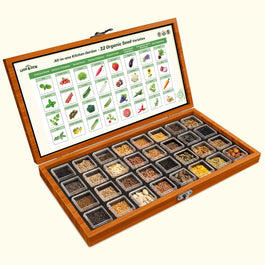What Is A Pollinator?
Pollinators are vital organisms responsible for transferring pollen from one flower to another, facilitating the reproduction of flowering plants. This process is critical to the reproduction of many plant species, including those that provide food and habitat for humans and wildlife. While some plants can be self-pollinated and some can be wind-pollinated, the vast majority of plants require the help of a variety of animals such as birds, bats and bees.
Common Pollinators
Why Are Pollinators Important?

Ecosystem Health
Pollinators play a vital role in maintaining the health and diversity of ecosystems. By facilitating plant reproduction, they contribute to the stability and resilience of natural habitats.

Food Production
Many crops, including fruits, vegetables, nuts, and seeds, rely on pollination to produce fruits and seeds. Pollinators are responsible for pollinating numerous agricultural crops, making them essential for global food security.

Biodiversity
Pollinators support the reproduction of over 75% of flowering plants, including many rare and endangered species. They help sustain diverse plant communities that provide food and habitat for countless other organisms.
Why Should We Care About Pollinators?

- Food Security -
Pollinators are crucial for crop pollination, contributing to the production of approximately one-third of the food we eat. Without pollinators, many crops would fail to produce fruits and seeds, leading to food shortages and economic losses.

- Biodiversity Conservation -
Protecting pollinators is essential for preserving biodiversity and the functioning of ecosystems. Pollinators play a key role in maintaining plant diversity, which in turn supports a wide range of wildlife species. In addition, many medicinal plants rely on pollinators for reproduction, making pollinators of indirect importance to human health..

- Economic Importance -
The economic value of pollination services provided by pollinators is estimated to be billions of dollars annually. Pollinators contribute to agricultural productivity, which has significant implications for global economies and livelihoods.
How Can We Help & Support Pollinators?

① Plant Pollinator-Friendly Gardens
Choose native plants and flowers that provide nectar, pollen, and habitat for pollinators. Avoid using pesticides and herbicides that can harm pollinators and their food sources.

② Reduce Pesticide Use
Minimize the use of pesticides in gardens and agricultural practices to protect pollinators from harmful chemicals. Opt for organic or natural pest control methods whenever possible.

③ Provide Nesting Sites
Create nesting habitats for pollinators by leaving areas of your garden undisturbed, providing nesting materials like twigs and leaves, and installing bee hotels or nesting boxes for solitary bees and other insects.

④ Support Conservation Efforts
Get involved in local and global initiatives aimed at protecting pollinator populations and their habitats. Support organizations working to protect pollinators through donations, volunteering, or advocacy.












